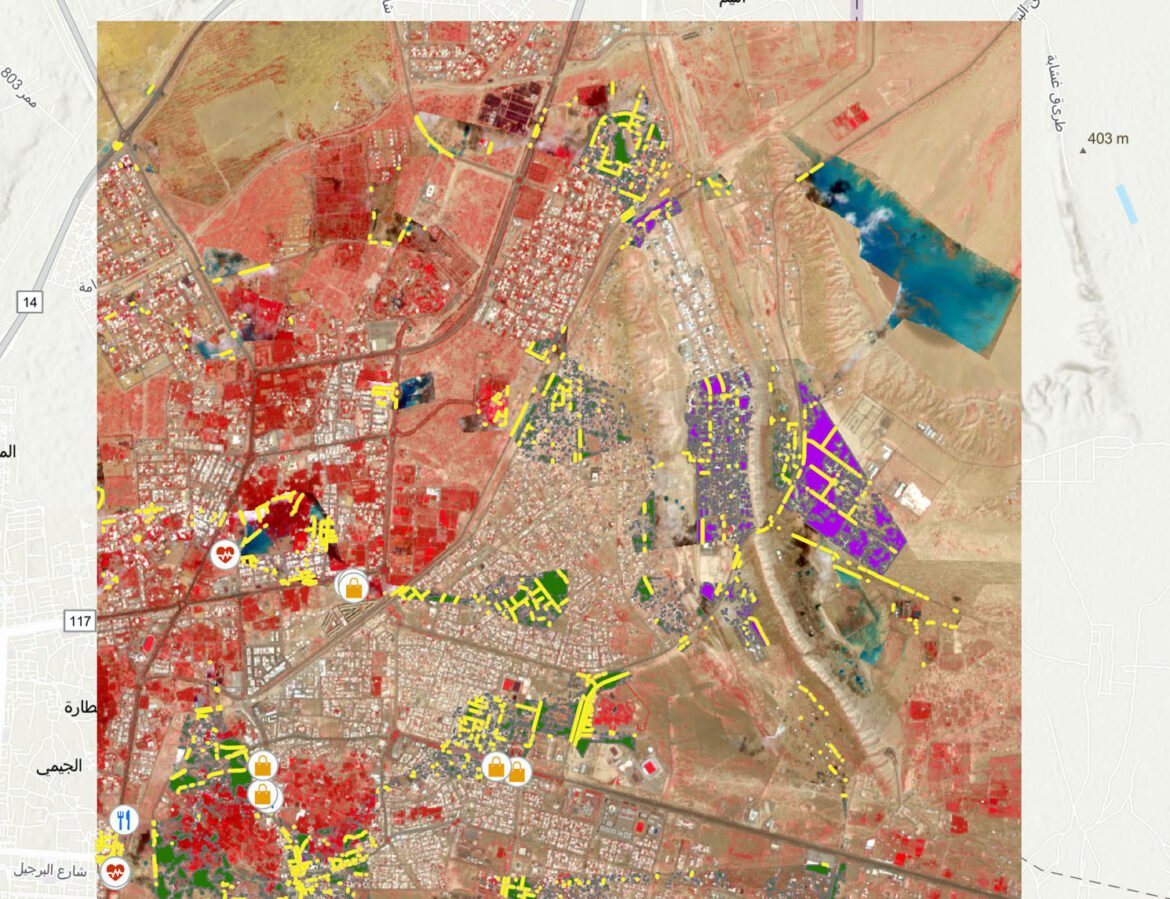Following the recent record-breaking weather experienced across the Gulf region, the Mohamed bin Zayed University of Artificial Intelligence (MBZUAI) is investigating how AI-powered solutions can be used in urban planning to tackle climate change-induced extreme weather events.
A team of MBZUAI researchers and students have combined AI and computer vision techniques to create an automated satellite data analysis prototype for flood assessment, it was shared.
Associate Professor of Computer Vision Dr Salman Khan leads the team.
The MBZUAI researchers, using three localised case studies for the Palm in Dubai, the Musaffah area in Abu Dhabi, and the AlBuraimi region in Oman, have utilised available spatial satellite data to compare remotely sensed imagery before and after the storm.
The resulting analysis aims to provide a useful change detection tool for local municipalities and authorities to rapidly assess the impact of heavy rains. This tool can be used to precisely locate which roads are heavily impacted by water accumulation following extreme rain events and pinpoint affected critical infrastructure and population clusters, which may be most in danger.
“From our analysis of the Dubai case study area, we found that 140 kilometers out of the 2963 kilometers was impacted by rain, including primary, residential, service, and highways,” explained Dr Khan.
“In this imagery, from the color depiction, we can estimate the depth of the water. We noted a roughly six square kilometer built-up area in this study to be flooded after the April 16 rain, equating to 6.4% of the total built-up area.”
The model is currently in its early stages and relies on AI models and free, publicly available data, including Sentinel-2 imagery at 10-meter resolution and OpenStreetMap, where volunteers worldwide contribute geographic information like streets, points of interest, and landmarks with community efforts to ensure data authenticity.
“Our hope is that such automated tools and analysis can help local authorities assess the critical locations that need more attention after extreme weather events and analyze the recovery process over time,” said Dr Khan.
The analysis pinpointed 460 affected cafes, 75 pharmacies/clinics, four malls, and 11 educational institutions, “vital information” for rescue, recovery, and future planning, said Dr Khan.
It was explained that the case studies could be expanded to map recovery and study how long it takes for flooded areas to dry up as a part of temporal analysis.
“With enough historical data, AI can then be used to analyze how a forecast rain event may impact urban areas across the world, offering more accurate warnings to residents,” outlined Dr Khan.
The researchers shared that, combined with more frequent, higher-resolution satellite imagery, an early warning system may be obtainable for specific areas.
Further, these foundation AI models for land-use mapping and change detection can be used in other applications.
It was noted that MBZUAI and IBM are currently working on AI-powered solutions to detect urban heat islands by identifying areas with excessive heat and correlating factors that contribute to them.
The solution will help city planners, municipalities, and residents mitigate the worst effects of heat islands, it was shared.
Looking ahead, MBZUAI aims to expand the flood study to include more areas across the Gulf region. It will also seek to engage with government and industry organisations to tailor and improve the tool through the addition of further data parameters.
Likewise, Dr Khan outlined that the team will also investigate how water accumulation affects population density and urbanisation.
“The information and analysis we provide can help authorities in many ways, like working with communities to make them more resilient, planning infrastructure that can handle these events, and creating policies to adapt to long-term water resource and infrastructure changes,” he said.
As such, the university plans to connect with UAE government authorities, municipalities, local developers, and the UAE flood assessment committee to demonstrate the team’s findings from using AI-powered solutions.




